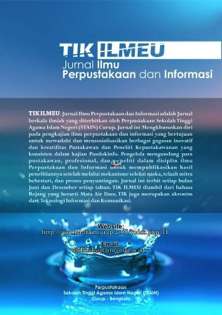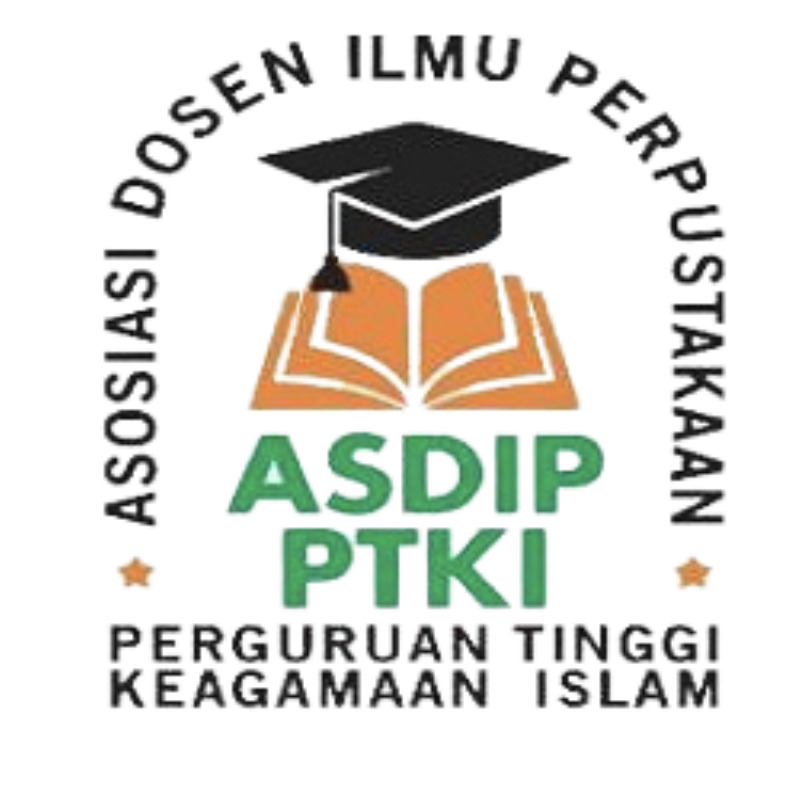Rancang Bangun Akun Instagram sebagai Sarana Informasi Perpustakaan Wacana Teknologi SMKN 1 Majalengka
DOI:
https://doi.org/10.29240/tik.v7i1.6157Keywords:
Instagram, Media Infromation, School LibrarAbstract
The Technology Discourse Library is a library managed by SMKN 1 Majalengka. The library has a significant development since 2020, yet this development has not done simultaneously with a proper media for sharing information, this causing the libary to be less well known by school users. Therefore, the school need a media that could be used for sharing information to help the library to be less unknown. The research method use in this paper is Action Research model by Burns with five steps on the first cycle and four steps on the continuation cycle. The data in this paper retrieved through interview, observation, and documentation. This research went through two cycles with result in the form of an Instagram account with @perpus.stemanika as username and managed by Technology Discourse Library SMKN 1 Majalengka’s staff. This Instagram account can be used as media for sharing information by Technology Discourse Library SMKN 1 Majalengka
Downloads
References
Ati, S., Nurdien, Kristanto, & Amin, T. (2012). Pengantar Konsep Informasi, Data, dan Pengetahuan. Universitas Terbuka, (1), 11–18. https://doi.org/10.15548/amj-kpi.v0i1.5
Dollarhide, M. (2021). Social Media. Diambil dari https://www.investopedia.com/terms/s/social-media.asp
Kartika, S., Husni, H., & Millah, S. (2019). Pengaruh Kualitas Sarana dan Prasarana terhadap Minat Belajar Siswa dalam Pembelajaran Pendidikan Agama Islam. Jurnal Penelitian Pendidikan Islam, 7(1), 113. https://doi.org/10.36667/jppi.v7i1.360
Madya, S. (2011). Teori dan Praktik Penelitian Tindakan (Action Research). Bandung: Alfabeta cv.
Mangnga, A. (2015). Peran Perpustakaan Sekolah terhadap Proses Belajar Mengajar di Sekolah. Jupiter, 14(1), 38–42. Diambil dari https://journal.unhas.ac.id/index.php/jupiter/article/download/27/25
Meilinda, N. (2018). Social Media On Campus: Studi Peran Media Sosial sebagai Media Penyebaran Informasi Akademik pada Mahasiswa di Program Studi Ilmu Komunikasi FISIP UNSRI. The Journal of Society & Media, 2(1), 53. https://doi.org/10.26740/jsm.v2n1.p53-64
Sagiyanto, A., & Nasution, N. R. (2022). Diseminasi Informasi Akun @abouttng dalam Pemenuhan Kebutuhan Informasi Masyarakat Kabupaten Tangerang. Jurnal Komunikasi dan Kajian Media, 6(2), 129–142. Diambil dari http://dx.doi.org/10.31002/jkkm.v6i2.6785
Saleh, A., Sasmita, H. O., Lumintang, R. W. E., Suparman, Bakhtiar, Y., Mintarti, & Warcito. (2021). Distribusi Informasi. Bogor: IPB Press.
Sari, D. N., & Basit, A. (2020). Media Sosial Instagram Sebagai Media Informasi Edukasi. Persepsi: Communication Journal, 3(1), 23–36. https://doi.org/10.30596/persepsi.v3i1.4428
Suharsaputra, U. (2012). Metode Penelitian Kuantitatif, Kualitatif, dan Tindakan. Bandung: Refika Aditama.
Supriyatno, H. (2019). Strategi pemanfaatan media sosial sebagai sarana promosi perpustakaan: Studi analisis persepsi pemustaka tentang efektifitas pemanfaatan media sosial sebagai sarana promosi layanan Perpustakaan UIN Sunan Ampel. Indonesian Journal of Academic Librarianship, 3(3), 33–45. Diambil dari https://techno.okezone.com
Downloads
Additional Files
Published
Issue
Section
Citation Check
License
Authors who publish with Tik Ilmeu : Jurnal Ilmu Perpustakaan dan Informasi agree to the following terms:
- Authors retain copyright and grant the journal right of first publication with the work simultaneously licensed under a Creative Commons Attribution-NonCommercial-ShareAlike 4.0 International License (CC BY-NC-SA 4.0) that allows others to share the work with an acknowledgment of the work's authorship and initial publication in this journal.
- Authors are able to enter into separate, additional contractual arrangements for the non-exclusive distribution of the journal's published version of the work (e.g., post it to an institutional repository or publish it in a book), with an acknowledgment of its initial publication in this journal.
- Authors are permitted and encouraged to post their work online (e.g., in institutional repositories or on their website) prior to and during the submission process, as it can lead to productive exchanges, as well as earlier and greater citation of published work (See The Effect of Open Access).







 This work is licensed under a
This work is licensed under a 